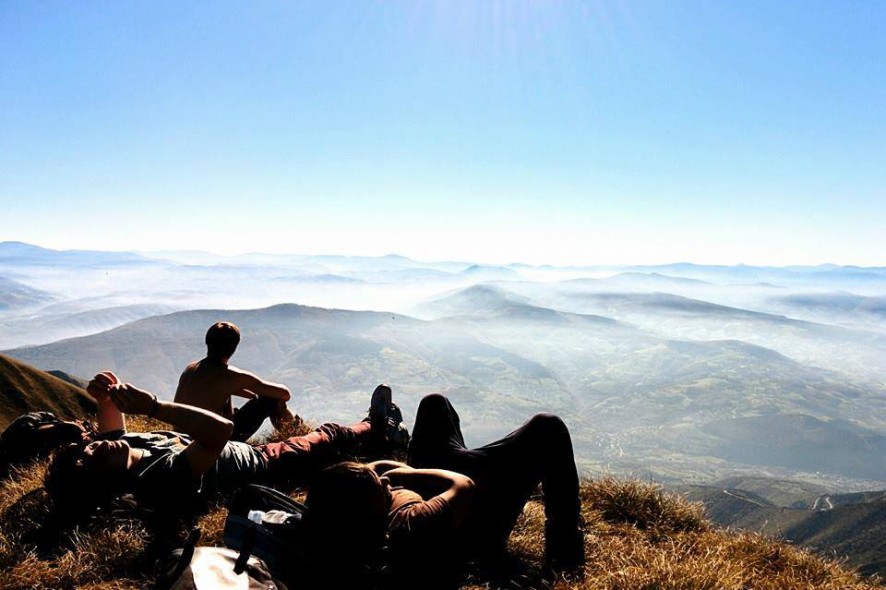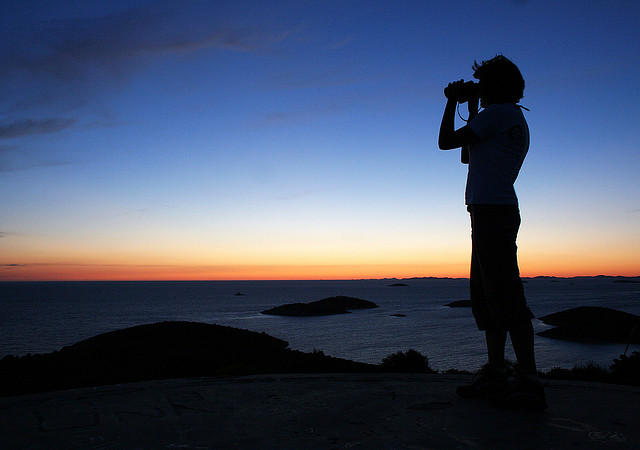by Valentin Steinhauer
This goes out to all the EU enthusiasts of my generation. To those out there in their twenties, spending their time studying the EU, working with or within the EU. To those who are or have been on Erasmus and those participating in the European Voluntary Service. Simply put, to anybody of my generation who is enthusiastic about the European project. It’s time to tell our side of the story.
We are the most mobile generation to date. While our parents were often confined to geographical, political and socio-economic boundaries, the concepts of space and time have been redefined and continue to change in our globalised world. This high level of mobility comes both with great opportunities as well as a price to pay. The downside of mobility is a feeling of uprooting. The more mobile we are, the less predictable our future. Relationships and friendships are as often created through mobility as they are burdened by it. Nevertheless, we do not want to complain because mobility, for us, means choice. Having the choice to stay abroad is a privilege.
As a German, I have studied in the Netherlands for almost four years, spent my Erasmus exchange in France and lived in Belgium for an internship. However, sometimes I still catch myself forgetting that the opportunities provided by the European Union, most notably the right to move, study and work freely across the continent, are only exploited by a minority. Indeed, what we need to realise is that our borderless life is often far from people’s reality at home. Thus, telling our side of the story is not about saying how great we are. On the contrary, it is about saying how lucky we are.
Nothing is more dangerous than a situation in which the ones who are benefitting the most from integration forget about the people at the core of the project. Inequality of opportunity is what ultimately poses the biggest threat to Europe. The European Union can never sustain itself as an elitist project. Today, most Europeans do not spend much time abroad, except maybe for holidays. Thus, encouraging mobility remains the most vital tool to make Europe a real life experience. However, while mobility can and should be strengthened, we urgently need to direct our attention at how to bring the EU closer to the people right now.
With this in mind, we also need to ask ourselves how we can contribute to shift the European Union from the realm of the abstract to the world of the tangible. The benefits of integration may appear obvious to you, but they appear less and less obvious to the majority of the people. While this is certainly an obligation for politicians, I strongly believe that our generation’s privileges come with obligations, too.
European integration has given our generation opportunities and possibilities we would not have had without it. Thus, we need to ask ourselves what our legacy will be when the next generation reaches its twenties. Will they look at us as the generation who effortlessly left the stage to Farage, Le Pen, Wilders and co., or will they see something different in us?
Far from saying that the EU is flawless, we nonetheless have to contest that it has become the preferred victim of populist movements across the continent because it can easily serve as a scapegoat for others’ failure. While there seems to be an army of critics out there, ready to attack the EU, Brussels’ defence appears unorganised and all too afraid of the enemy both outside and inside its walls.
It is important to remain critical about the European Union, but it is also time to stand up for the things we love about it. In doing so, we are not engaging in a selfless act but rather in an act of self-preservation. Efforts to reverse integration, to restrict our freedom of mobility, to replace bridges with borders – things we witness at the moment – are ultimately actions aimed at our way of life. To cut a long story short, although a borderless continent has been given to us, it does not mean that they will never again take it from us.
Hence, it is time that we start telling our side of the story. A story which is different from the one told by populist parties but also different from the one told by politicians traditionally in favour of the European project. Discussions on Brexit, migration schemes, or Eurozone bail-outs are important, but do not make Europe approachable for its citizens. Despite all current problems, Europe needs to remain a positive experience for its people if its nations are not to drift apart any further.
In many ways, our generation has embraced the European project like no one before us. We combine the memory of a violent past with the privileges and opportunities of the present. We are the last generation to have had the opportunity to speak to family members who have witnessed Europe’s bloody past. I had the chance to talk to my grandfather who spent his twenties on Europe’s battlefields. By cherishing the memory of our grandparents, we honour the single most important heritage of our generation.
What follows is that our side of the story must be one of principle. Never shall we allow nationalists to gain the upper hand in Europe again. However, too many of us have remained silent in the public debate. Despite the rise of ‘Neo-Nationalism’ across Europe, we have remained invisible on the streets of Europe. Despite the efforts of some Member States to reconstruct borders between our nations, we have kept watching.
I believe the time has come to stand up and start telling our side of the story. Yes, mobility often comes as a double-edged sword. It has the power to create as much as it has the power to destroy. However, whereas you can always lose what you have by staying where you are, truly new experiences can only be made by moving forward. Thus, our story is one about creation. About European friendships, jobs, families, love, hope, future, freedom and peace. A story worth sharing because it is worth preserving.
Image by Rock Cohen, taken from flickr







